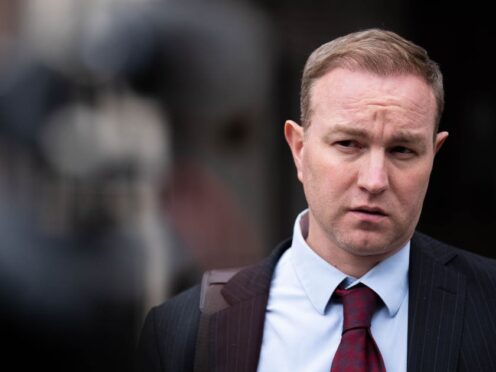An ex-financial market trader jailed for rigging an interest rate benchmark has said he hopes judges reach “the right decision” as he awaits a Court of Appeal ruling over whether his convictions should be overturned.
Tom Hayes, 44, a former Citigroup and UBS trader, was found guilty of multiple counts of conspiracy to defraud over manipulating the London Inter-Bank Offered Rate (Libor) between 2006 and 2010.
His case, alongside that of another similarly jailed trader Carlo Palombo, 45, were referred to the court by the Criminal Cases Review Commission (CCRC), which investigates potential miscarriages of justice.
A three-day hearing over their cases concluded on Monday, with judges due to issue their ruling at a later date.

Speaking outside the Royal Courts of Justice in London, Mr Hayes said the hearing “went well”, adding of the judges: “We’re hopeful that they will reach the right decision, not just for me but for all of the Libor traders”.
Hayes’ lawyers argued that the convictions of the two former bankers were “unsafe” and should be quashed.
Judges were told that England and Wales are the only countries where the actions of the two men are considered criminal.
The Serious Fraud Office (SFO) opposed the appeals.

The Libor rate was previously used as a reference point around the world for the setting of millions of pounds of financial deals, including car loans and mortgages.
It was an interest rate average calculated from figures submitted by a panel of leading banks in London, with each one reporting what it would be charged were it to borrow from other institutions.
At his 2015 trial, Hayes was described by prosecutors as the “ringmaster” at the centre of an enormous fraud to boost his own six-figure earnings.
Hayes, who has maintained his innocence, spent five and a half years in prison and was released in January 2021.
His previous Court of Appeal challenge was rejected in December 2015, though he succeeded in securing a three-year cut to his 14-year sentence.
Adrian Darbishire KC, representing Hayes, said in arguments backed by Palombo’s lawyers that the judge overseeing Hayes’ 2015 trial was wrong to tell jurors that there was a ban on commercial considerations during the Libor setting process.
He also said the judge’s directions to the jury had a “catastrophic” impact on his defence and made his trial “extraordinarily unfair”.
Judges were told they should follow the approach of a US appeals court in January 2022 which found there was no ban on taking into account commercial interests when making rate submissions.
Palombo, an ex-vice president of euro rates at Barclays bank, was found guilty of conspiring with others to submit false or misleading Euro Interbank Offered Rate (Euribor) submissions between 2005 and 2009.
He was jailed for four years in April 2019 after a retrial.
Palombo, who denied acting dishonestly, lost a bid to overturn his conviction at the Court of Appeal in December 2020.
James Waddington KC, for the SFO, told the court that appeal arguments “reveal no new reason for questioning the approach and findings of this court on several prior occasions”.
He said the Libor definition and Euribor code “prohibit a panel bank from considering its own financial interests when deciding on the rates to be submitted”.
James Hines KC, also representing the SFO, argued that the judge in Hayes’ trial had correctly directed jurors, adding that the US ruling was “irrelevant” to the fairness of his trial.
According to the SFO, Hayes was one of 19 people prosecuted for trader manipulation and one of nine convicted – all of whom have since brought unsuccessful appeal bids.
